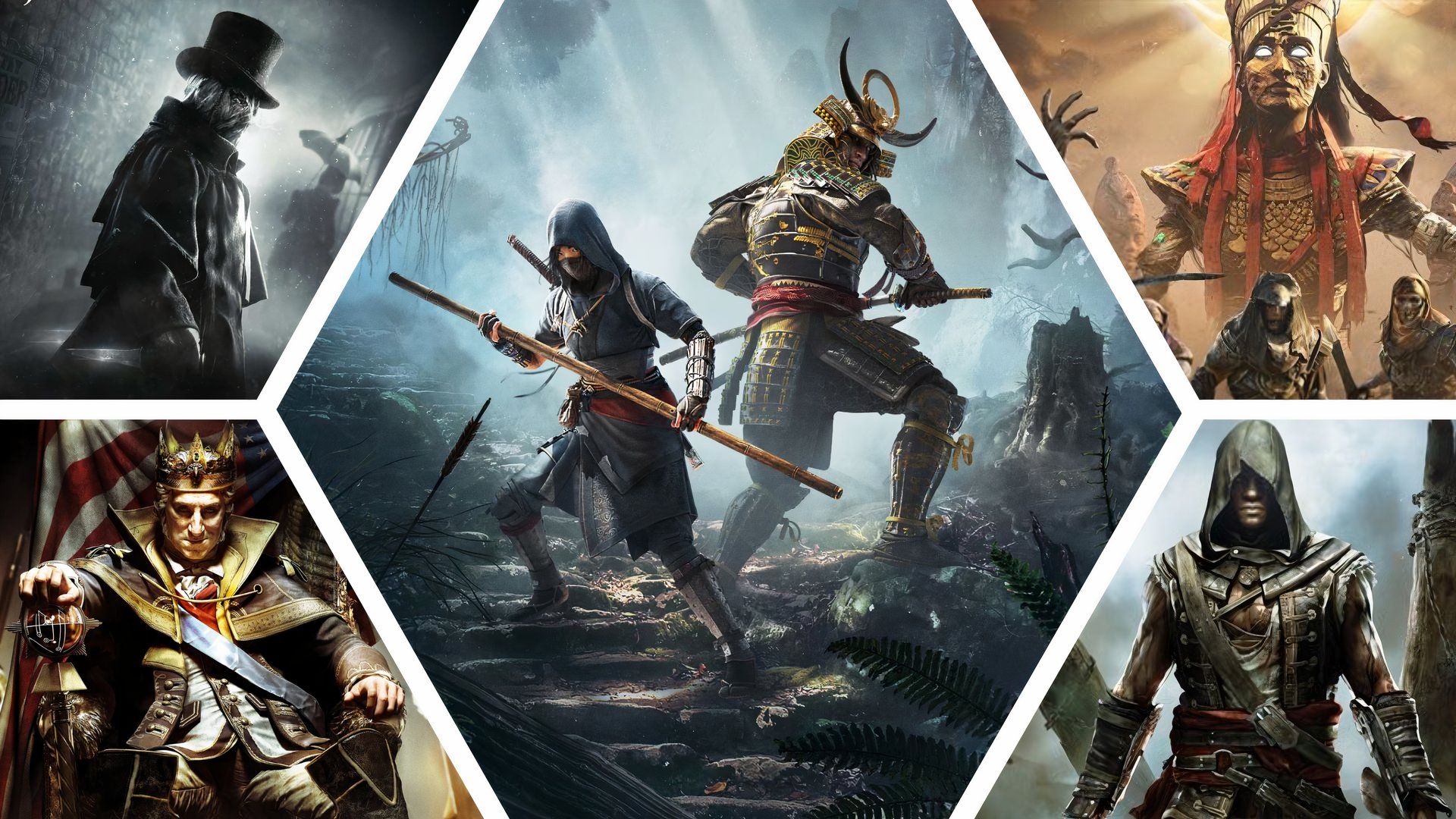
I’ve been playing Assassin’s Creed for almost 16 years now, and one thing I’ve always loved is how Ubisoft keeps adding to the stories. It started way back in 2009 with Assassin’s Creed 2, and they’re *still* doing it – the latest one, Assassin’s Creed Shadows, coming out in 2025 has more content to dive into!
As a gamer, I’ve noticed DLCs do different things. Some pick up right after the main game’s ending, continuing the story. Others are like awesome side adventures with cool, limited-time abilities. And sometimes, they let you really get to know some of the supporting characters, showing what *they* were up to and how they grew, separate from the main Assassin’s Creed heroes. It’s great to see those characters get their own spotlight!
Now that Ubisoft Bordeaux has launched the first big expansion for *Shadows*, called *Claws of Awaji*, it seemed like a good moment to revisit all the major DLC releases in the *Assassin’s Creed* series over the years.
We’ll be ranking these downloadable content packs based on how good their stories are, how fun they are to play, what unique things they offer, and how well they add to the larger story and development of characters in *Assassin’s Creed*.
This list excludes downloadable content that adds multiplayer maps, like those found in games such as *Assassin’s Creed: Brotherhood*, and also excludes very short, single-mission updates.
20. Assassin’s Creed Revelations: The Lost Archive
Assassin’s Creed At Its Most Boring
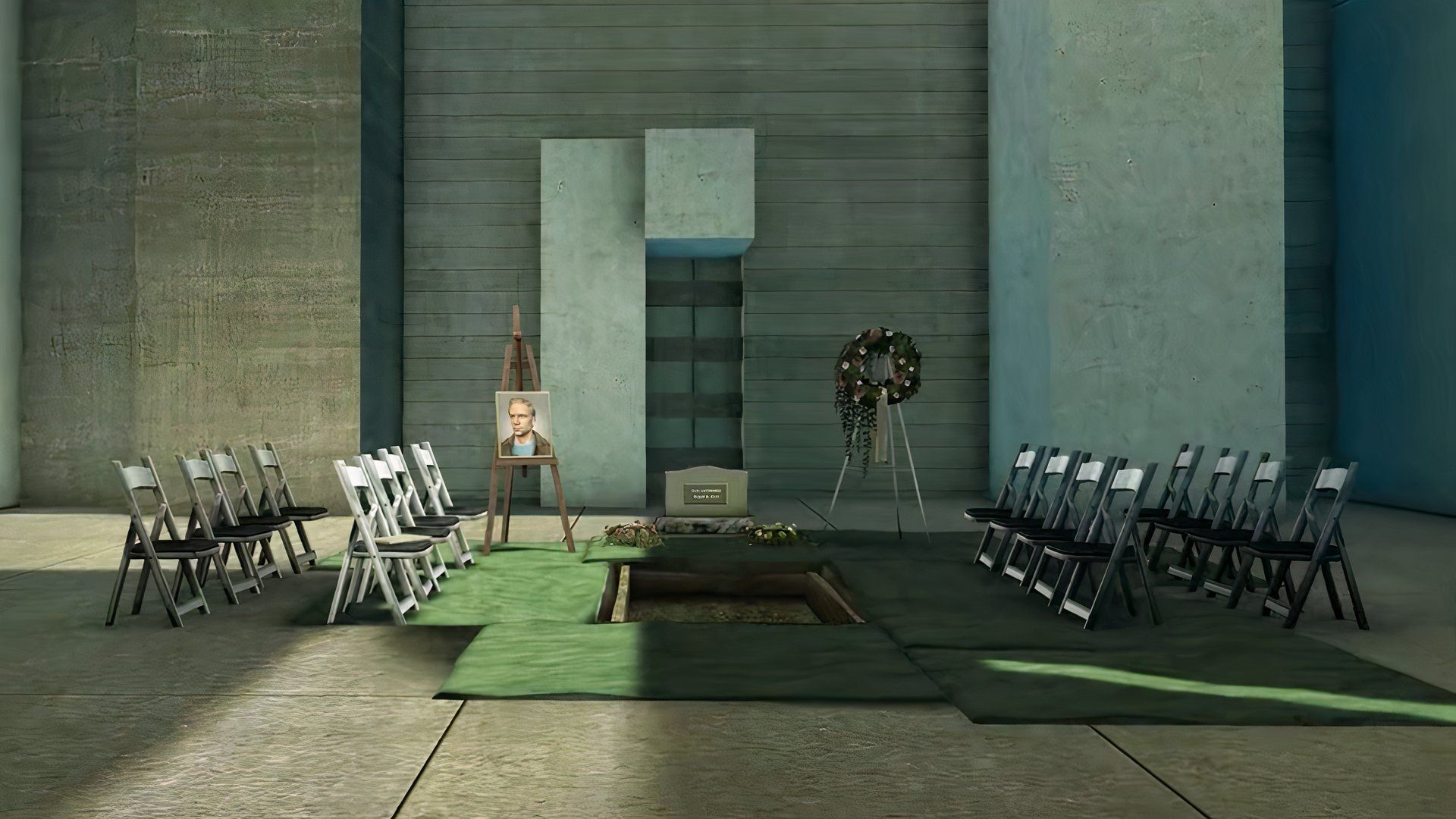
While many remember *Assassin’s Creed Revelations* for finishing the stories of Ezio and Altair in Constantinople and Masyaf, it also delves deeper into Desmond Miles’ story and the ongoing battle between Assassins and Templars in the present day, all experienced through the Animus.
Players control Miles on Animus Island using the typical third-person perspective, but the majority of the game’s memory sequences switch to a first-person view. These sections take place in bland, gray settings where Miles has to build floating platforms and ramps to progress.
The main gameplay loop of *The Lost Archive* DLC is unfortunately the most tedious *Assassin’s Creed* content I’ve experienced. The puzzles and platforming aren’t enjoyable, falling short of even the standards set by games like *Portal* or classic *Assassin’s Creed* titles.
While learning about Clay Kaczmarek and Lucy Stillman’s history is somewhat engaging, it would have been much better presented as a dedicated prequel DLC with traditional gameplay, rather than being limited to audio snippets during simplistic platforming sections.
19. Assassin’s Creed Syndicate: The Last Maharaja
A Dull Extension Of Syndicate’s Story
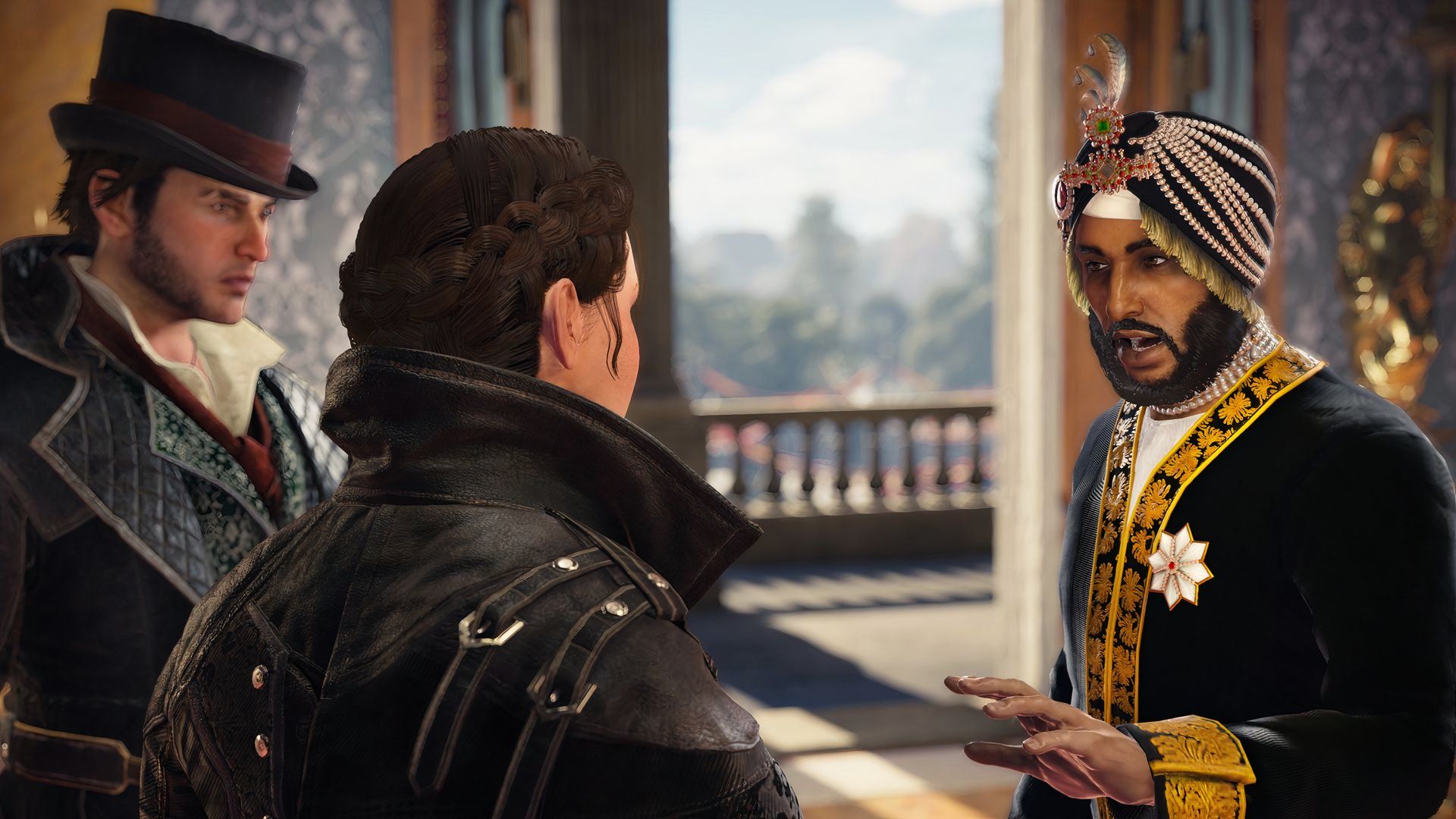
Okay, so *Assassin’s Creed Syndicate* didn’t exactly fly off the shelves compared to other *AC* games, but Ubisoft kept supporting it with DLC. Honestly, of the three they released, *The Last Maharaja* was the one that really let me down. It just didn’t hit the same quality as the others, in my opinion.
Although *The Last Maharaja* tells the story of a prince and knight living in London and touches on the complex connection between Britain, India, and the Sikh Empire during the late 1800s, it doesn’t offer much that’s new or particularly exciting to the *Syndicate* series.
The Last Maharaja doesn’t introduce any new ways to play, and its character interactions are unusually buggy for an Ubisoft game. While the DLC focuses on Duleep Singh’s personal growth and eventual reconnection with his Sikh faith – a necessary part of his story – the other characters don’t experience much development.
The central mystery of the DLC – the Koh-i-Noor diamond – turned out to be a forgery, and Henry Green knew it all along. This made the entire story feel ultimately meaningless and wasted the player’s time.
18. Assassin’s Creed: Brotherhood: Copernicus Conspiracy
Copernicus’ Wasted Potential
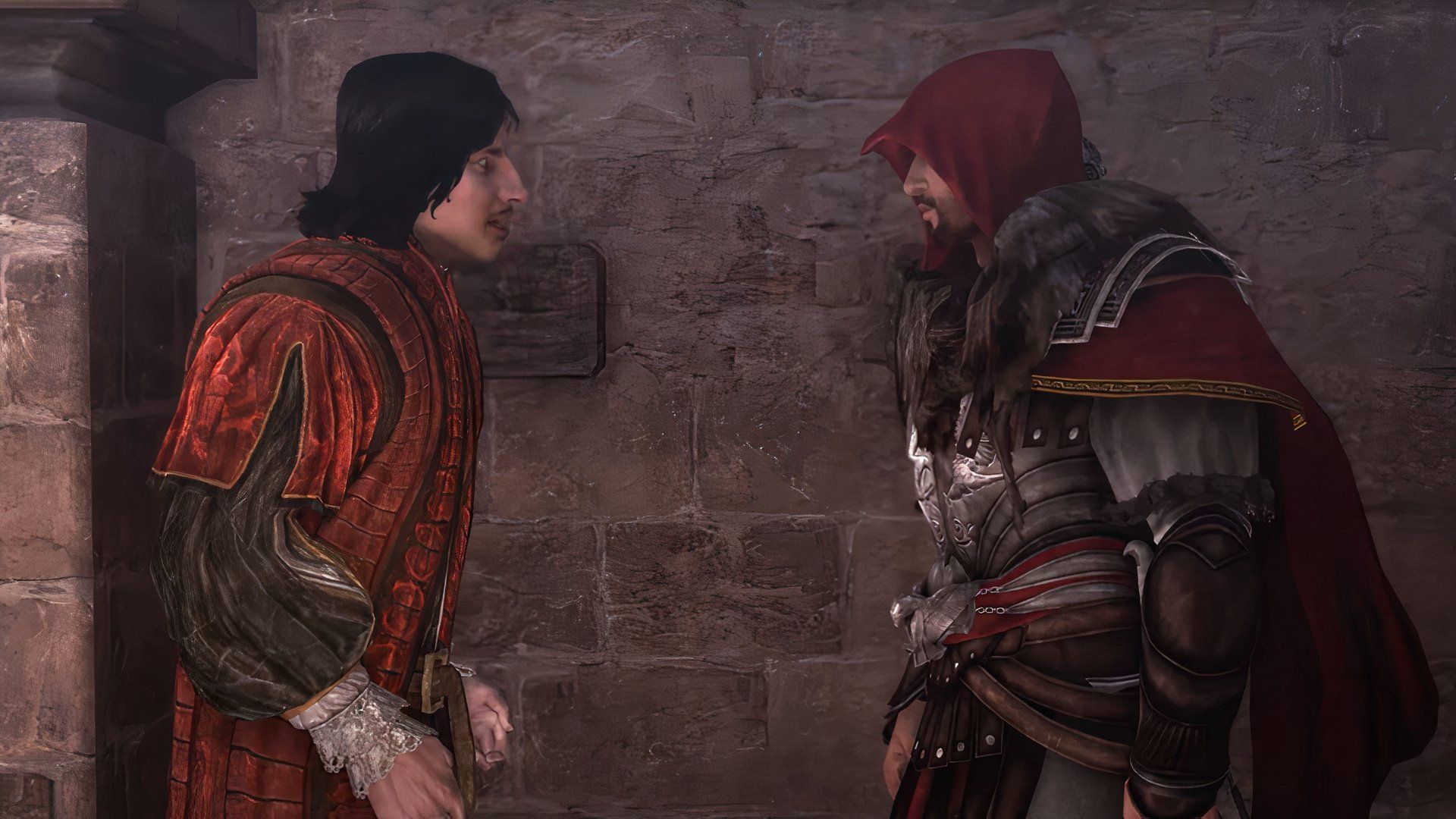
The *Assassin’s Creed* games, particularly the *Ezio Trilogy*, featured many famous figures from the Italian Renaissance, including artists, thinkers, and leaders. However, the way the game *Assassin’s Creed: Brotherhood*’s DLC, *The Copernicus Conspiracy*, portrayed the groundbreaking astronomer Nicolaus Copernicus was arguably a misrepresentation.
Originally available as downloadable content for the PlayStation 3, *The Copernicus Conspiracy* introduces Ezio to the astronomer Copernicus in Rome. He finds Copernicus under attack by Borgia Templars who are trying to suppress his scientific findings.
Even though the downloadable content features a historically significant figure, it mostly involves standard escort tasks and timed challenges where you protect Copernicus’s colleagues from the Borgia family.
As someone fascinated by history, I was disappointed with how Copernicus was portrayed. He had the potential to be a key figure like Leonardo da Vinci, using his studies at the Universities of Bologna and Padua to help the Assassins discover more about the world and possibly even ancient Isu technology.
17. Assassin’s Creed 4: Black Flag: Aveline
The Overbrief Return Of Aveline And Connor
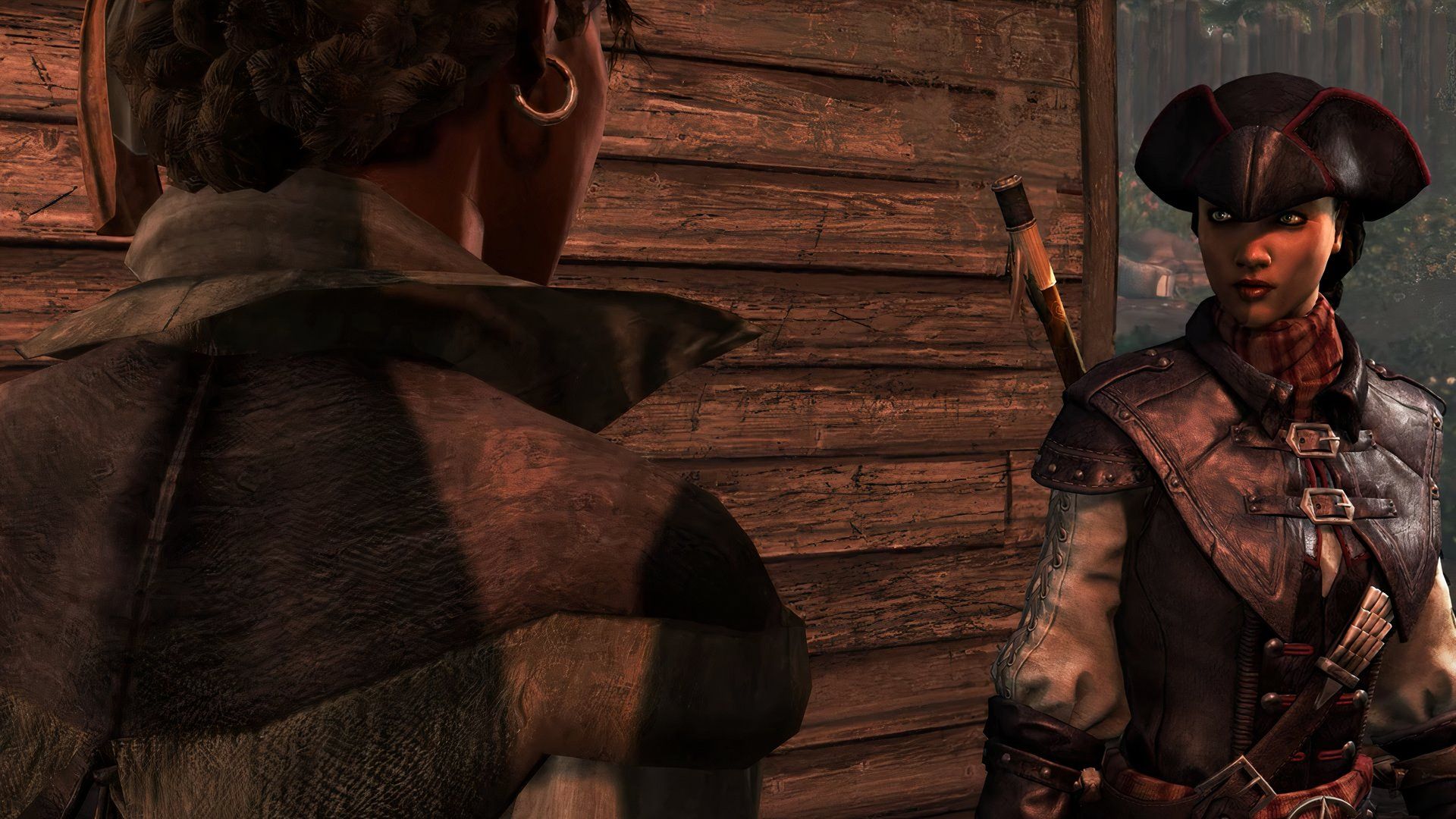
Many consider *Assassin’s Creed 4: Black Flag* to be a standout title, not only within the *Assassin’s Creed* series, but also as one of the best pirate games ever created. Unfortunately, the *Aveline* downloadable content, initially released only for PlayStation 3 and 4, didn’t reach the same level of quality as the main game or the *Freedom Cry* expansion.
The Aveline DLC takes place decades after *Black Flag* and a few years after *Assassin’s Creed 3*. In it, Connor Kenway asks Aveline de Grandpre, the main character from *Assassin’s Creed 3: Liberation*, to save a former slave named Patience Gibbs from the Templars and bring her into the Assassin Brotherhood.
It’s wonderful to have Noah Watts and Amber Goldfarb back as Connor and Aveline in this downloadable content. However, the biggest problem is that the expansion feels quite short and doesn’t introduce any significant new gameplay elements to *Black Flag*.
The Aveline DLC is quite short, taking less than 40 minutes to finish. It mainly involves Aveline moving between bushes, liberating slaves, and quietly eliminating Templars. However, this simple gameplay feels underwhelming for a returning character as compelling as Aveline from the Assassin’s Creed series.
16. Assassin’s Creed Odyssey: The Fate of Atlantis
A Deep Dive Into Greek Mythology
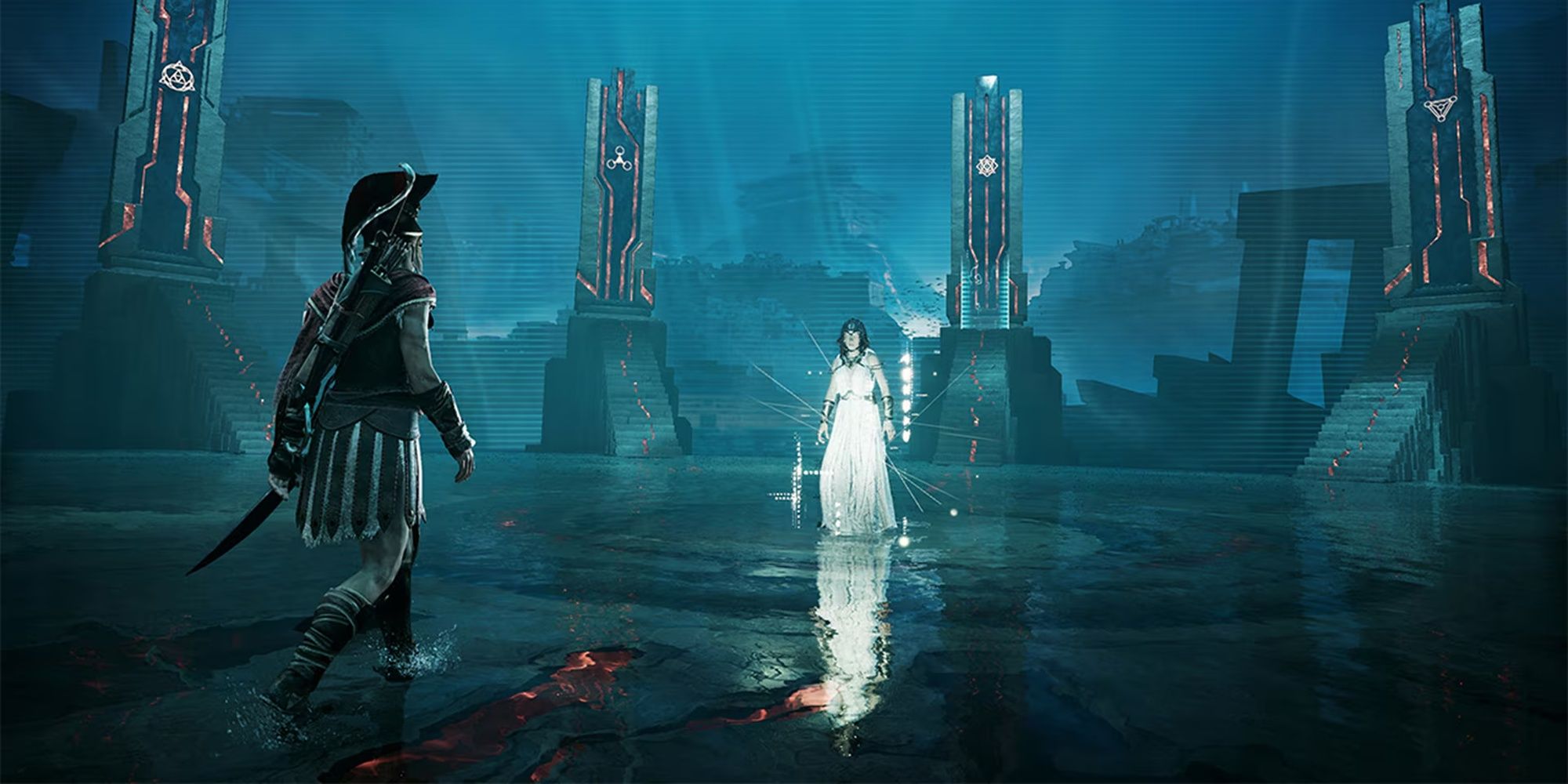
The *Assassin’s Creed* series has always been known for its realistic take on history, with only minor fantastical elements tied to the ancient Isu and Pieces of Eden. However, that changed when Ubisoft introduced full-blown mythology with the *Fate of Atlantis* expansion for *Assassin’s Creed Odyssey*.
I’ve always enjoyed when the *Assassin’s Creed* games centered on the realistic conflict between Assassins and Templars throughout history. So, I wasn’t thrilled when *Odyssey* introduced mythical creatures like Cyclopes and Minotaurs, and the *Fate of Atlantis* expansion continued to lean into making mythology a central part of the game.
While the visuals of *Fate of Atlantis* – including its versions of Elysium, the Underworld, Atlantis, and creatures from Greek mythology like Cerberus – were impressive, they didn’t quite fit with the *Assassin’s Creed* series’ focus on experiencing authentic historical settings and events.
Kassandra’s journey through Elysium and battling Greek gods in Atlantis doesn’t quite fit with the overall *Assassin’s Creed* series. The story and gameplay feel better suited for games focused on mythology, like *God of War* or *Immortals Fenyx Rising*.
15. Assassin’s Creed Valhalla: Dawn of Ragnarok
A Leap Into Norse Mythology
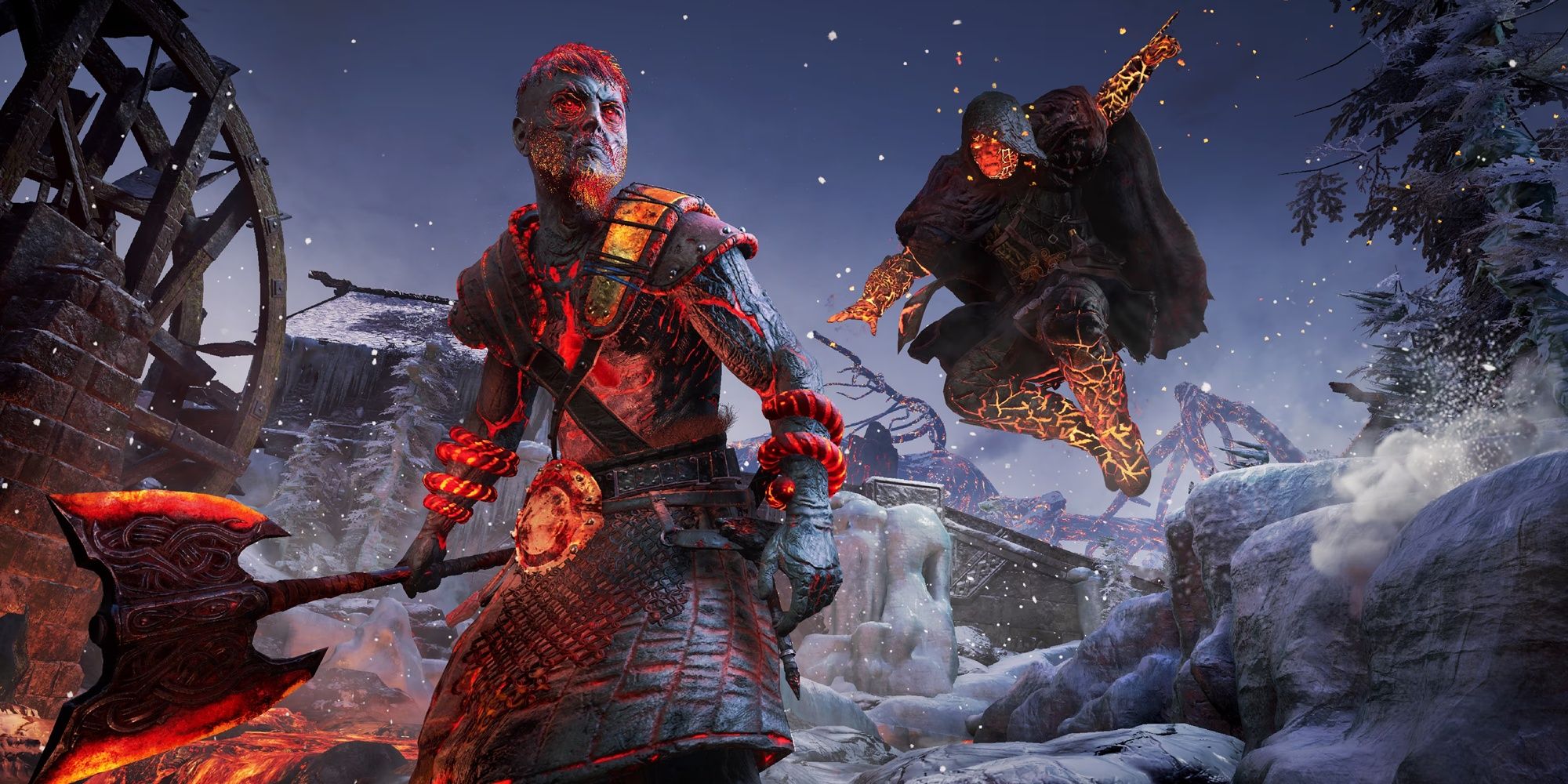
I didn’t enjoy the *Dawn of Ragnarok* expansion for *Assassin’s Creed Valhalla* for the same reasons I disliked *The Fate of Atlantis*: it focuses too much on Norse mythology and not enough on the historical setting or the core Assassin versus Templar storyline.
Okay, so in *Ragnarok*, you don’t play as Eivor exactly. You actually get to experience Eivor’s memories as Odin, the Norse God, and it’s all about trying to save his son, Baldr, from Surtr and this huge army of fire giants called Muspels. It’s a really cool twist on the story!
Although it’s cool to see a fresh and beautiful take on the nine realms of Norse mythology in this expansion, it feels out of place within the world of *Assassin’s Creed*.
Additionally, *Ragnarok* feels like a rather dull rehash of the Norse apocalypse, particularly when compared to *God of War Ragnarok*. This is mainly because the downloadable content suffers from the same issue as *Valhalla*’s main game: too much repetitive and pointless activity. Even the new abilities, like the Power of the Raven, can’t make up for it.
14. Assassin’s Creed Odyssey: Legacy of the First Blade
Darius’ Time to Shine
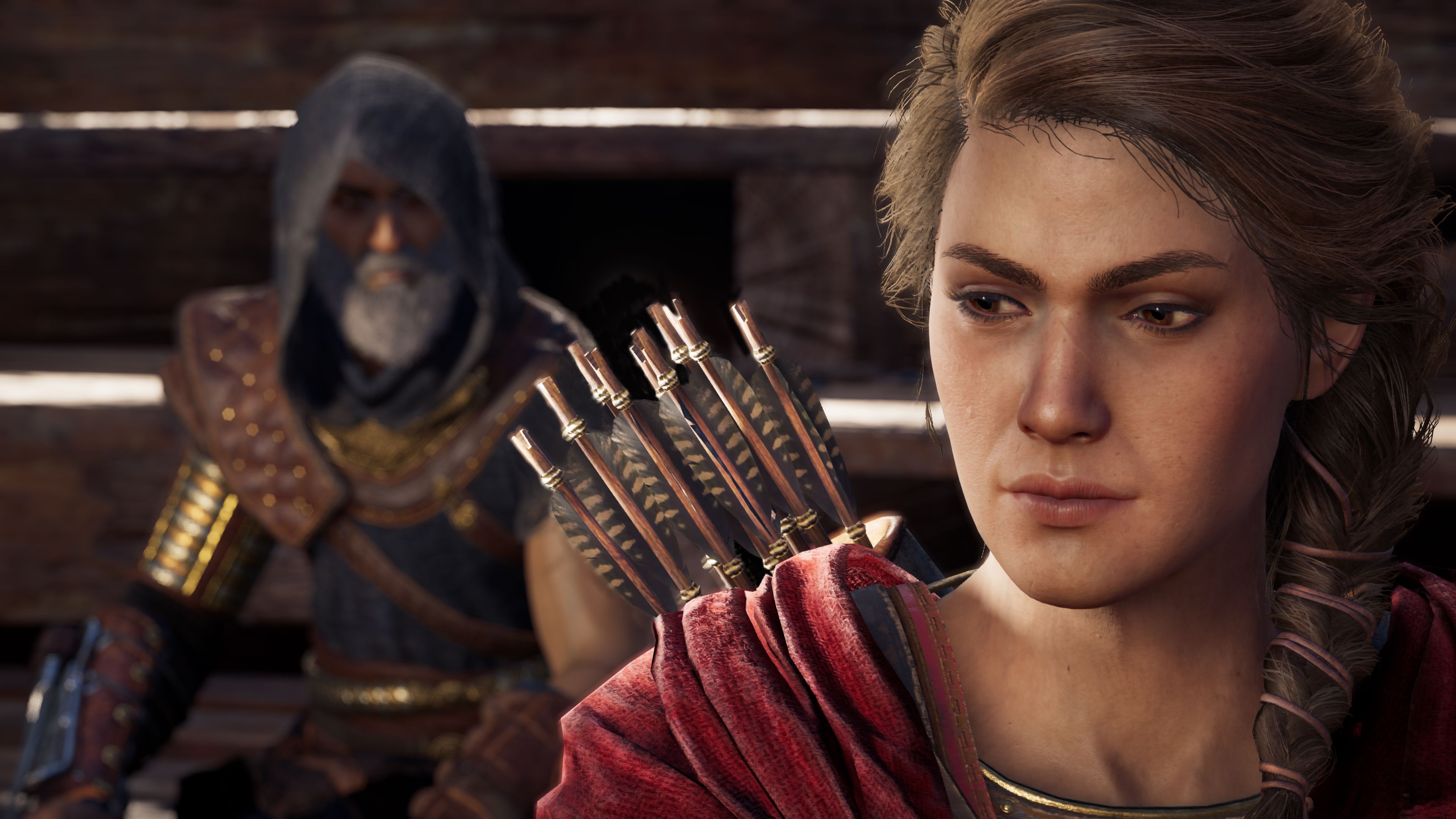
Although it wasn’t as large as *Fate of Atlantis*, I much preferred *Odyssey*’s *Legacy of the First Blade* DLC. It added real depth to the Assassin’s Creed story and allowed Kassandra’s character to develop in a compelling way.
Mostly taking place in Macedonia, *First Blade* tells the story of Kassandra as she unexpectedly helps Darius, the inventor of the hidden blade, and his son Natakas in their battle against the Persian Order of the Ancients.
You can’t play as Darius or his version of the Hidden Blade in this downloadable content, but it’s still exciting to see him in action. You get to learn about the first time he used the Hidden Blade to kill King Xerxes and see how the Order of the Ancients – the group that eventually became the Templars – first started operating.
This downloadable content is slightly disappointing because it clashes with the role-playing elements of *Odyssey*. Specifically, it forces Kassandra into a romantic relationship with Natakas and to have a child with him, even if players chose to develop a romantic connection with different characters.
13. Assassin’s Creed Valhalla: Wrath of the Druids
An Interesting Look At Medieval Ireland
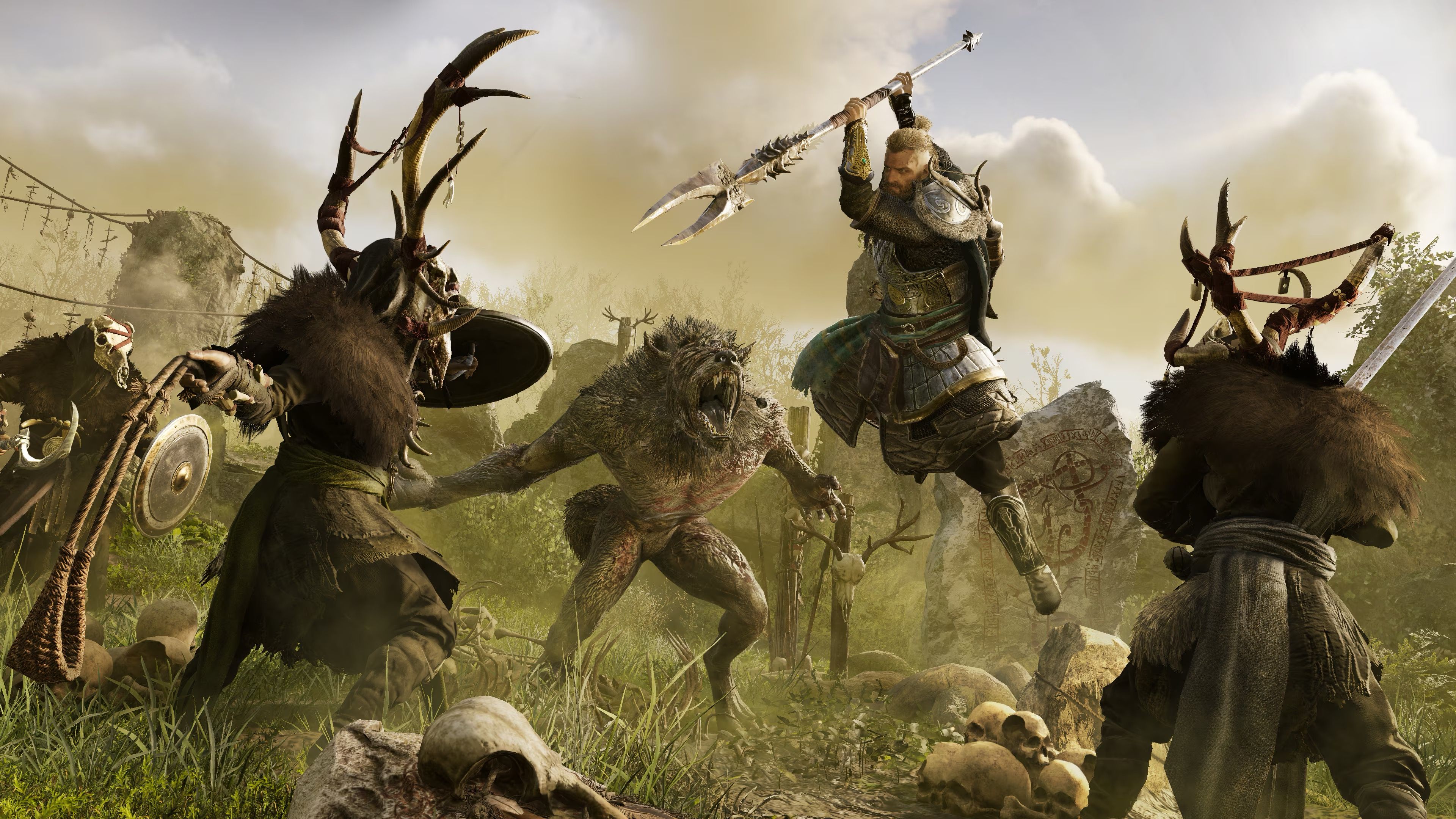
While the first big expansion for *Valhalla*, *Wrath of the Druids*, didn’t add a ton of new ways to play compared to *Ragnarok* or *Siege of Paris*, it more than makes up for it with its compelling setting and exploration of medieval Ireland and its political landscape in the late 800s.
Okay, so in *Druids*, I play as Eivor and head to Dublin around 879-881. Basically, my cousin, King Barid, needs help making a solid deal with the High King of Ireland, Flann Sinna. But there’s trouble brewing – this old Pagan group called the Children of Danu are trying to kick both the Christians and Norse (like us!) out of Ireland, and we have to stop them and keep the peace.
As someone who loves history, it’s really exciting to see Sinna crowned at the Lia Fail. The story beautifully portrays the clash between the original Irish people and the Vikings and Christians who were arriving, and it’s fascinating to see what Dublin was like centuries ago, before it grew into the city we know today.
As a fan, I always found the supernatural stuff in *Druids* interesting, like the werewolves and puca. But it’s cool how they explained those away as just being illusions caused by the Druids’ gas – it keeps the setting grounded more than the gods and monsters we saw in expansions like *Ragnarok* or *Atlantis*. Those felt like a bigger departure from the core *Age of Conan* feel.
12. Assassin’s Creed 2: The Battle of Forli
A Needless Detour
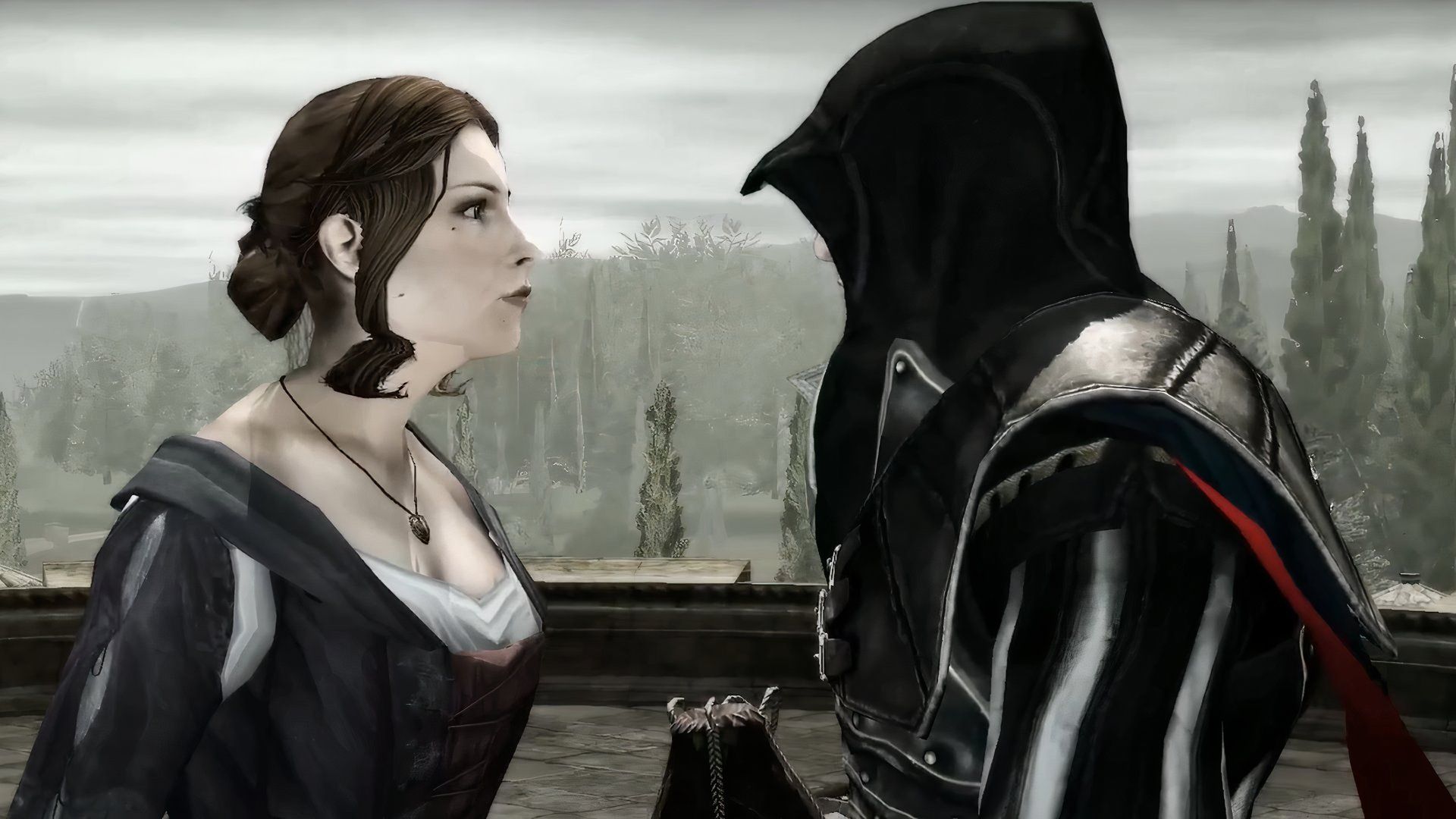
The first downloadable content for *Assassin’s Creed*, *The Battle of Forli* from *Assassin’s Creed 2*, was a decent but somewhat pointless side story to the main game.
The events at Forli reveal a crucial part of Ezio’s past, showing his early days as an Assassin. He worked with Caterina Sforza to defend the Apple of Eden from Checco and Ludovico Orsi, mercenaries employed by the Templars, but this particular sequence was initially flawed in the game’s development.
It’s enjoyable to experience more of Ezio’s adventures, and revisiting Da Vinci’s flying machine is a blast. However, the story doesn’t do much to deepen Ezio’s character, and the Orsi brothers aren’t particularly compelling as villains.
This DLC is easily one of the least essential in the *Assassin’s Creed* series. All you really need to know before moving on to the next installment is that Ezio lost the Apple to the well-known friar, Girolamo Savonarola.
11. Assassin’s Creed Valhalla: The Siege of Paris
The Potential Of A Viking Assassin
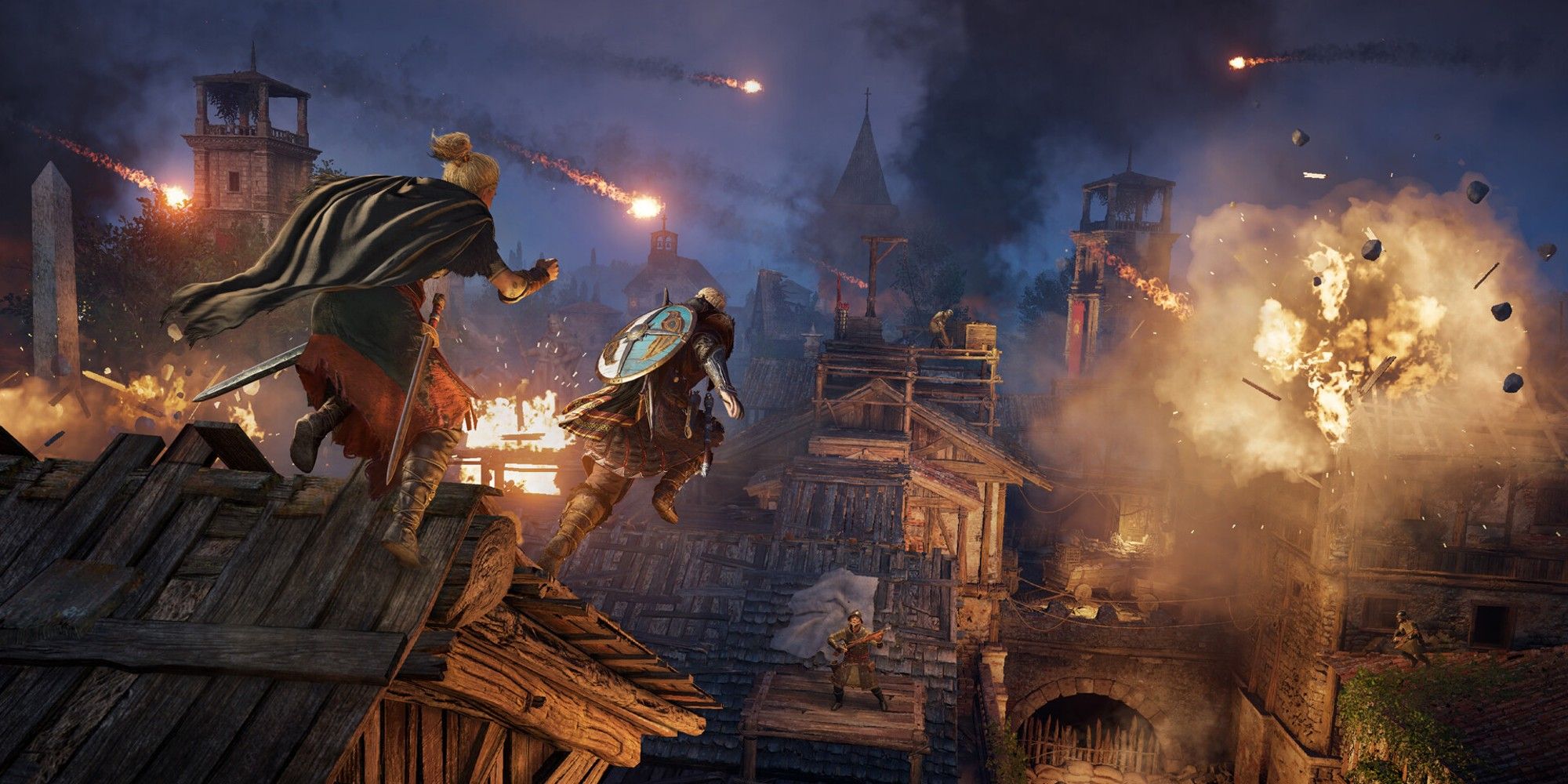
When *Valhalla* was initially revealed, along with the promise of bringing back the social stealth gameplay from past *Assassin’s Creed* games, I expected the story to follow Eivor becoming a Viking who was trained as an Assassin – much like how Connor and Edward Kenway were brought into the Brotherhood.
That event wasn’t actually part of the game. Instead, Eivor is revealed to be a reincarnation of Odin, possessing a secret blade, and stealth isn’t a significant element of gameplay in *Valhalla*.
Honestly, the *Siege of Paris* DLC really showed me what *Valhalla* could’ve been. They finally made stealth feel useful, and the assassination missions were fantastic! It brought back the open-ended, ‘Black Box’ style from *Assassin’s Creed Unity*, which meant I could take out targets in tons of different ways and from all sorts of angles. It was exactly the kind of freedom I was hoping for.
Beyond the better gameplay, exploring 9th-century France in *The Siege of Paris* is really enjoyable. It feels distinct from the previously visited locations of Ireland, England, and Norway, thanks to its tall walls, bustling city, and battle-scarred countryside.
Read More
- All Golden Ball Locations in Yakuza Kiwami 3 & Dark Ties
- All Itzaland Animal Locations in Infinity Nikki
- NBA 2K26 Season 5 Adds College Themed Content
- Elder Scrolls 6 Has to Overcome an RPG Problem That Bethesda Has Made With Recent Games
- BREAKING: Paramount Counters Netflix With $108B Hostile Takeover Bid for Warner Bros. Discovery
- Gold Rate Forecast
- Brent Oil Forecast
- James Gandolfini’s Top 10 Tony Soprano Performances On The Sopranos
- Critics Say Five Nights at Freddy’s 2 Is a Clunker
- Super Animal Royale: All Mole Transportation Network Locations Guide
2025-10-06 17:13